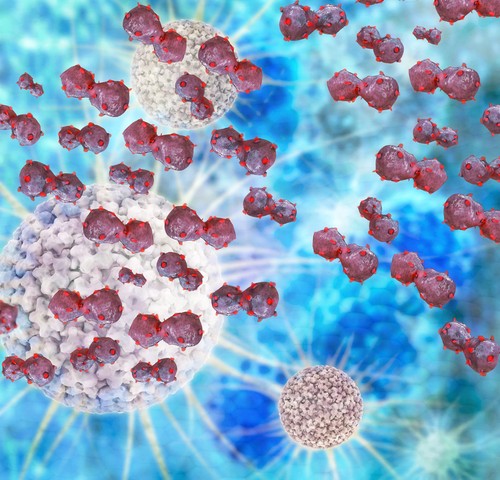A Phase 1 study has started dosing patients who have newly diagnosed high-grade gliomas with a combination of Candel Therapeutics‘ gene-mediated cytotoxic immunotherapy (GMCI) plus Opdivo (nivolumab) and standard of care therapy.
GMCI (aglatimagene besadenovec plus prodrug) is an “off-the-shelf” adenovirus-based medicine meant to increase the amount of immune cells entering a tumor, improving immune cell responses and making patients more likely to respond to immunotherapies. This is particularly important for brain tumors such as gliomas, which have a very immunosuppressive environment.
The treatment delivers a gene of the herpex simplex virus into cancer cells, which can be used to create toxic compounds that cause localized cancer cell death. Cancer cells then shed small protein fragments able to stimulate an immune response and to trigger immune cell migration into tumors.
Combining GCMI with standard of care therapies, including surgery, radiation therapy, and chemotherapy, has shown a good safety profile in multiple tumor types, with promising signs of efficacy.
In glioblastoma — the most aggressive kind of brain cancer — a combination of GCMI and standard of care was well-tolerated and extended patients’ survival from a median of 16.3 months to 25.1 months in a Phase 2a study (NCT00589875). In another trial (NCT00634231), the treatment was also deemed safe in children and adolescents with brain cancers.
“The data generated with GMCI in the upfront high-grade glioma setting is some of the more compelling clinical data in the field in the last few years. The scientific rationale for the combination of GMCI and nivolumab is sound and is supported by pre-clinical data,” said Patrick Wen, director of the Center for Neuro-Oncology at Dana-Farber Cancer Institute, Harvard Medical School.
The ongoing Phase 1 trial (NCT03576612) builds on extensive clinical evidence showing that CGMI improves the efficacy of immune checkpoint inhibitors such as Bristol-Myers Squibb‘s Opdivo.
The trial, in collaboration with the Adult Brain Tumor Consortium and Bristol-Myers, is led by Wen. The researchers expect to include 36 patients across the U.S., all of whom with newly diagnosed high-grade gliomas eligible for surgery.
Participants will receive the CGMI adenoviral vector at the time of surgery — the therapy is delivered into the tumor site — followed by Opdivo and standard radiation therapy plus the chemotherapy temozolomide.
The study’s main objective is to determine the safety and maximum tolerated dose of the combo therapy. Additional objectives include overall survival and the length of time during and after treatment that a patient lives without disease worsening.
“The application of our GMCI platform in combination with nivolumab further expands Candel’s glioma franchise beyond single use application and is an important milestone for the company,” Estuardo Aguilar-Cordova, chairman and CEO of Candel Therapeutics, said in a press release.
“We are excited for the opportunity to work on a potential new treatment for patients with this devastating disease and we are grateful to our collaborators, the patients participating in this study, and their families,” Aguilar-Cordova said.
Added Wen: “When one further considers GMCI’s compelling clinical data in various other indications, there is a strong rationale for moving forward with this combination study.”


